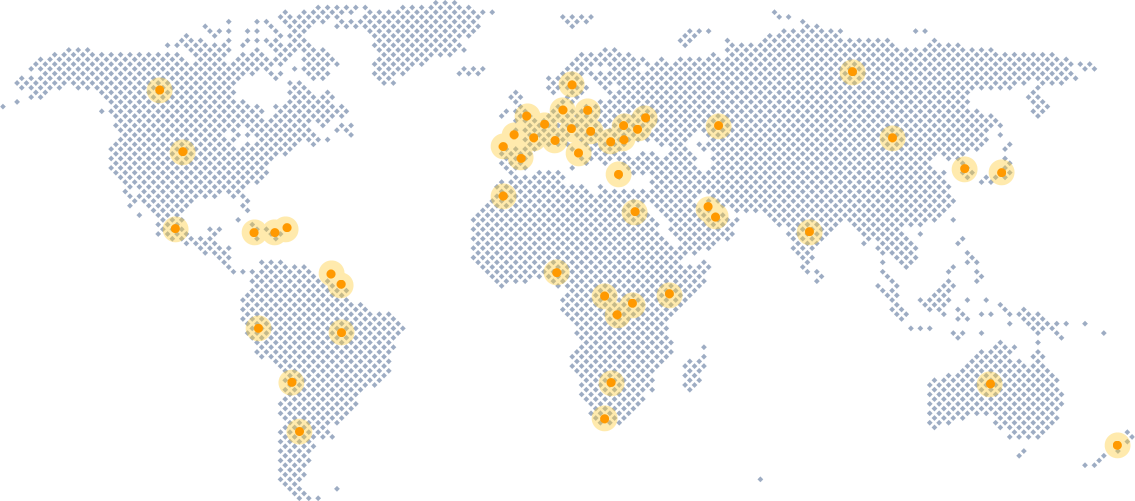
You've just received the call every football player dreams of—a top-flight club wants to sign you for an international transfer. While this opportunity could be the next big step in your athletic career, FIFA's transfer regulations can make the move more difficult than expected. One misstep with registration periods, contract termination, or youth transfer rules could derail your dreams before they begin.
FIFA Regulations on the Status and Transfer of Players govern every aspect of international player movement, from training compensation to third-party ownership restrictions. At Global Sports Advocates, our international sports law attorneys have helped football players from around the world successfully navigate these regulations to protect their careers and maximize their opportunities.
Table of Contents
- When Can Transfers Happen? The Importance of Registration Periods
- Restrictions on International Youth Transfers
- The Importance of Player Contracts and Just Cause Termination
- Training Compensation and Solidarity Payments
- Loans, Agents, and Third-Party Ownership
- Resolving Disputes via the FIFA Football Tribunal
When Can Transfers Happen? The Importance of Registration Periods
International moves can only occur during specific registration periods, also known as transfer windows. FIFA mandates two annual windows:
- A main registration period, which can't exceed 12 weeks. This usually takes place in the off-season.
- A shorter period in the middle of the season, capped at 4 weeks.
There are a few exceptions, like if you're a free agent or facing exceptional circumstances. In general, however, transfers take place within these windows.
Restrictions on International Youth Transfers
FIFA has strict rules in place to protect young players making international transfers. In general, you can't transfer internationally until you turn 18. There are some limited exceptions:
- If your parents move to the country for non-football reasons
- Transfers within the EU/EEA if you're between 16-18
- You live near a national border and your new club is within 50 km
Clubs must also guarantee your football education, schooling, living standards, and mentorship.
The Importance of Player Contracts and Just Cause Termination
Your player contract is sacrosanct. Once signed, both you and the club must honor it until expiration or mutual termination. The only other way out is termination for just cause, but the bar is high. Typically, it means:
- The club fails to pay your salary for 2+ months.
- You face abusive conduct forcing you to resign.
- You're an established pro with a lack of playing time.
Terminating without just cause brings steep consequences, including sporting sanctions and compensation owed to your old club.
The key takeaway: don't sign a contract lightly, as walking away is never simple. At Global Sports Advocates, we encourage athletes to contact our experienced international sports law attorneys with any questions they might have about the terms of a contract.
Training Compensation and Solidarity Payments
FIFA believes in compensating the clubs that developed you. When you sign your first pro contract and each time you transfer until age 23, your new club owes training compensation to clubs that trained you from ages 12-21. The amount depends on how long you spent at each club and their category.
Similarly, any club that held your registration from ages 12-23 gets a cut of your future transfer fees via solidarity payments.
Loans, Agents, and Third-Party Ownership
Here are a few other regulations to keep in mind as you're contemplating a transfer:
- Loans to other clubs are permitted, but these may come with restrictions on duration and the number of loans per club.
- Use a licensed football agent to provide added contract protections.
- Third parties (like investors) can't influence your career path or own a stake in your transfer rights.
Resolving Disputes via the FIFA Football Tribunal
If disputes arise related to your contract or transfer, you have recourse through the FIFA Football Tribunal. This independent body has jurisdiction over:
- Disputes between clubs and players with an international dimension
- Training compensation and solidarity payment disputes
- Employment-related disputes between clubs/associations and coaches
The Tribunal offers a fair, specialized forum for resolving football-related issues without needing to go to civil court. Legal assistance is not required, but strongly recommended.
If you're facing a dispute that falls under the jurisdiction of the FIFA Football Tribunal, the experienced attorneys at Global Sports Advocates can help by:
- Creating a legal strategy tailored to the unique facts of your case
- Advocating on your behalf during the hearing
- Ensuring any orders, such as compensation awards, are fully enforced.
- Advise you on how to comply with any applicable Tribunal sanctions
- Appealing to the Court of Arbitration for Sport, if necessary

